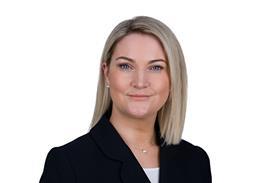In-house lawyers are a fast growing part of the legal profession. Approximately one in four solicitors across England and Wales are in-house - it has become an exciting and interesting part of the profession. The change of lifestyle, working directly for clients, working in different areas of law amongst many more reasons are why it’s becoming so popular. The sphere of the in-house world however can differ greatly compared to that of private practice when we think about ethics and the actual role of the solicitor. The fabric of what is means to be a solicitor combined with the role of being an employee of the client can sometimes draw some conflicting scenarios.

Every solicitor is aware of the SRA principles: the fundamental principles which all solicitors must adhere to. These are made under section 31 of the Solicitors Act 1974, section 9 of the Administration of Justice Act 1985 and section 83 of the Legal Services Act 2007. These include all of the main behaviours and principles which all members of the legal profession should follow, including acting with independence, honesty and integrity - furthermore, acting in a way that upholds public trust and confidence in the solicitors' profession and in legal services provided by authorised persons. In the context of the workplace and dealing with clients in a traditional private practice setting, these principles are pretty clear (for most people anyway). There is a clear distinction between solicitor and client, almost an invisible barrier between the two in terms of who they work for, what their role is and the dynamic of responsibility. When a solicitor enters the realm of being in-house, do the boundaries change?
To be truly independent you must not have the same or similar interests as the client. If a solicitor did have the same interests then it may make them biased in a certain way. Having independence allows legal practice to take place without any bias, with clarity and without having to put the client or the solicitor under any undue pressure. Some obvious scenarios are when solicitors are approached by family or friends. This can impact independence. This element of independence can also act as a way to mitigate against issues such as bribery and/or corruption. Having an independent legal professional dealing with the matter at hand eliminates a lot of potential issues early on.
When you are an employee of any organisation, you would assume that you have the best interests of the organisation at mind and you are constantly acting in a way to further its aims and objectives. Mix this scenario with being a solicitor and you may have a scenario where you are balancing the principles of your profession against the aims of your organisation. As an in-house solicitor you are uniquely placed as an employee who legally advises the employer. At this angle, does the principle of independence come under scrutiny? Depending on the specific matter, certain employees may or may not benefit from the scenario. The dynamic of employer and employee also gets highlighted where the solicitor may advise on matters which may or may not actually proceed. Regardless of the experience and seniority of the solicitor, it can become difficult to have those conversations as you indirectly become the decision maker as well as the legal advisor in some circumstances.
From a much broader perspective we have solicitors that are in-house across all industries and sectors. If certain organisations act or behave in certain ways which are not positively perceived by the public, do we then have a clash with the principle of upholding public trust and confidence in the legal profession? The range of issues can span from climate, international conflict, to healthcare, medicine and more. At what point if any does working directly for an organisation, in which their aims do not align with the public, cause a conflict with professional obligations?
The realm of an in-house lawyer is exciting and interesting. The relationship of employer and employee is a fascinating dynamic which can put some in-house lawyers in some very unique situations when it comes to ethics.
Baljinder Singh Atwal is chair of Birmingham Law Society's In-House Committee and Law Society council member representing junior solicitors 0-6 years PQE across England and Wales



















![Eleanor Clarke - 029[8]](https://d1d8vslyhr7rdg.cloudfront.net/Pictures/274x183/1/5/1/120151_eleanorclarke0298_527574_crop.jpg)





No comments yet